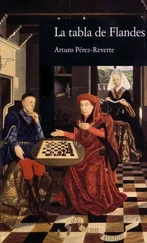Arturo Pérez-Reverte - Purity of Blood
Здесь есть возможность читать онлайн «Arturo Pérez-Reverte - Purity of Blood» весь текст электронной книги совершенно бесплатно (целиком полную версию без сокращений). В некоторых случаях можно слушать аудио, скачать через торрент в формате fb2 и присутствует краткое содержание. Жанр: Старинная литература, на английском языке. Описание произведения, (предисловие) а так же отзывы посетителей доступны на портале библиотеки ЛибКат.
- Название:Purity of Blood
- Автор:
- Жанр:
- Год:неизвестен
- ISBN:нет данных
- Рейтинг книги:3 / 5. Голосов: 1
-
Избранное:Добавить в избранное
- Отзывы:
-
Ваша оценка:
- 60
- 1
- 2
- 3
- 4
- 5
Purity of Blood: краткое содержание, описание и аннотация
Предлагаем к чтению аннотацию, описание, краткое содержание или предисловие (зависит от того, что написал сам автор книги «Purity of Blood»). Если вы не нашли необходимую информацию о книге — напишите в комментариях, мы постараемся отыскать её.
Purity of Blood — читать онлайн бесплатно полную книгу (весь текст) целиком
Ниже представлен текст книги, разбитый по страницам. Система сохранения места последней прочитанной страницы, позволяет с удобством читать онлайн бесплатно книгу «Purity of Blood», без необходимости каждый раз заново искать на чём Вы остановились. Поставьте закладку, и сможете в любой момент перейти на страницу, на которой закончили чтение.
Интервал:
Закладка:
“These are very serious accusations.”
“They have been proved time and again. This Juan Coroada is not some simple, credulous priest, like so many; not one of the Illuminati, not a mere petitioner, not a fanatic. He is thirty years old. He has money, position at court, and he cuts a handsome figure. He is a pervert who has turned the convent into his private seraglio.”
“There is a more explicit word, Father,” put in the younger of the sons. His voice trembled with anger, and he was almost stuttering; anyone could see that he was restraining himself out of respect for his father.
Don Vicente de la Cruz reprimanded him, frowning. “Perhaps. But as your sister is there, dare not be so bold as to speak it.”
The youth paled and bowed his head, as his elder brother, less vocal and more self-possessed, put a hand on his arm.
“And the other priest?” pressed Alatriste.
The light falling through the window illuminated the side of the captain’s face, leaving the other side in shadow. It highlighted his scars: the one over the left eyebrow and another, more recent, at the hairline in the center of his brow, a souvenir of the skirmish in the yard of El Príncipe theater. The third visible scar, across the back of his left hand, was also recent and also from a dagger. That had been acquired in the ambush at the Gate of Lost Souls. Unseen, covered by clothing, were four others, the latest being the wound that had mustered him out of the Battle of Fleurus, the one that some nights kept him from sleeping.
“Fray Julián Garzo is the confessor,” don Vicente de la Cruz replied. “Another admirable church leader. He has an uncle on the Council of Castile. That renders him untouchable, like his confrere.”
“In other words, two men to watch out for.”
Don Luis, the younger son, could barely contain himself, his fist squeezing the pommel of his sword. “What you mean is two dogs, two swine.”
He was choking on his repressed anger, and that made him seem even younger; that, and the blond, still unshaven, fuzz on his upper lip. His father sent him another frowning glance, demanding silence before he continued.
“The fact is,” he said, “that the walls of La Adoración convent are thick enough to silence all that goes on within them: a chaplain who veils his lasciviousness beneath a hypocritical mysticism, a stupid and credulous prioress, and a congregation of unfortunate women who have been convinced that they have celestial visions or are possessed of the Devil.” The caballero ran his fingers through his beard as he spoke, and it was obvious that acting with equanimity and decorum was costing him dear. “They are even told that through love for and obedience to the chaplain they may find the way to God, and that certain intimacies and unchaste acts proposed by the spiritual director are the pathway to perfection.”
Diego Alatriste was far from being surprised. In the Spain of our very Catholic monarch, Philip IV, faith was usually sincere, but its external manifestations often resulted in hypocrisy in the privileged, and superstition in the common folk. In that broad panorama, many clergy were fanatic and ignorant, a vulgar assemblage of ne’erdo-wells who wanted to escape employment or military service; some, ambitious and immoral, hoped to better their social situation, more devoted to their own good than to the glory of God. While the poor paid taxes from which the rich and the religious by profession were excluded, legal scholars argued whether ecclesiastic immunity was or was not a divine right. And there were many who took advantage of the tonsure to satisfy contemptible appetites and self-interest. The result was that side by side with unquestionably honorable and saintly clerics, one also found the vile and avaricious: priests who had concubines and bastard children, confessors who preyed on women in the confessional, nuns who entertained lovers, convents that were havens for illicit affairs. These scandals that were the daily, if not exactly hallowed, bread.
“No one has condemned what is happening there?”
Don Vicente de la Cruz nodded dejectedly. “Yes. I myself. I even sent a detailed reminder to the Conde de Olivares, the king’s right hand, but have no reply.”
“And the Inquisition?”
“They are informed. I had a conversation with a member of the Supreme Council. He promised to attend to my request, and I know that he sent two Trinitarian examiners to look into the matter. But between the efforts of Father Coroado and Father Garzo, and the collaboration of the prioress, they were convinced that all was in order, and they left with only good things to say.”
“Which is by all accounts strange,” interposed don Francisco de Quevedo. “The Inquisition has been keeping a sharp eye on the Conde de Olivares, and this would be a good pretext for harassing him.”
The Valencian shrugged. “That is what we believed. But no doubt they decided they would be spending too much good coin to protect a simple novice. Furthermore, Sor Josefa, the prioress, enjoys a reputation at court for being a pious woman. She devotes a daily mass and special prayers to Olivares, and the king and queen, of course, asking God to send them male heirs. That assures her respect and prestige, when in fact, except for a smattering of inconsequential knowledge, she is merely a foolish woman who has been sucked into the whirlpool of the chaplain’s charm. The case is not unusual, now that every prioress worth her salt must have at least five stigmata and exude the scent of sanctity.”
Don Vicente smiled with bitterness and scorn. “Her mystic aspirations, her desire to be center stage, her dreams of grandeur, and her connections, have led her to believe that she is a new Santa Teresa. In addition, ducats fall like rain from Father Coroado’s fingers, making La Adoración the wealthiest convent in Madrid. More than a few families want to place their daughters there.”
I was listening through the chink in the wall, not overly shocked despite my youth. In a society in which religion and immorality went hand in hand, confessors were notorious for taking tyrannical possession of the souls, and at times the bodies, of devout women—with scandalous consequences.
As for the influence of those in the religious life, it was immense. Different orders formed enmities and alliances among themselves. Priests forbade their faithful to reconcile with other congregations, and when it was their whim, they blithely severed family ties, even counseled disobedience of authority. Neither was it unusual to see clerics who preyed on women employ a mystic-amatory language that evoked the divine, nor veil prurient passions and appetites, ambition and lust, under the guise of spiritual exercises. The figure of the predatory priest was well known, and widely satirized, in that century, as in these explicit verses from La cueva de Meliso.
Inside, you will hear the confessions of beauteous servants of God. You may treat them as wives. They believe they live honorable lives and that you are purging demonic obsessions.
It was not surprising, in that time of superstition and sanctimoniousness, that such wickedness prevailed, given that we Spaniards lived in so little accord, badly fed, and worse governed amidst collective pessimism and disillusion. Sometimes we sought the consolation of religion because we felt we were on the brink of an abyss, and others for simple, bare-faced, earthly gain.
This situation was aggravated by the numbers of priests and nuns who had no calling for the cloth—there were more than nine thousand convents when I was a boy—the result of the practice of penniless noble families who, unable to wed their daughters with traditional decorum, instead directed them to the religious life, or incarcerated them against their will following some worldly indiscretion. Cloisters were filled with women who did not wish to be nuns. It was they to whom don Luis Hurtado de Toledo—the author, or, to be more accurate, the translator, of Palmerin of England —was referring in these famous lines.
Читать дальшеИнтервал:
Закладка:
Похожие книги на «Purity of Blood»
Представляем Вашему вниманию похожие книги на «Purity of Blood» списком для выбора. Мы отобрали схожую по названию и смыслу литературу в надежде предоставить читателям больше вариантов отыскать новые, интересные, ещё непрочитанные произведения.
Обсуждение, отзывы о книге «Purity of Blood» и просто собственные мнения читателей. Оставьте ваши комментарии, напишите, что Вы думаете о произведении, его смысле или главных героях. Укажите что конкретно понравилось, а что нет, и почему Вы так считаете.











